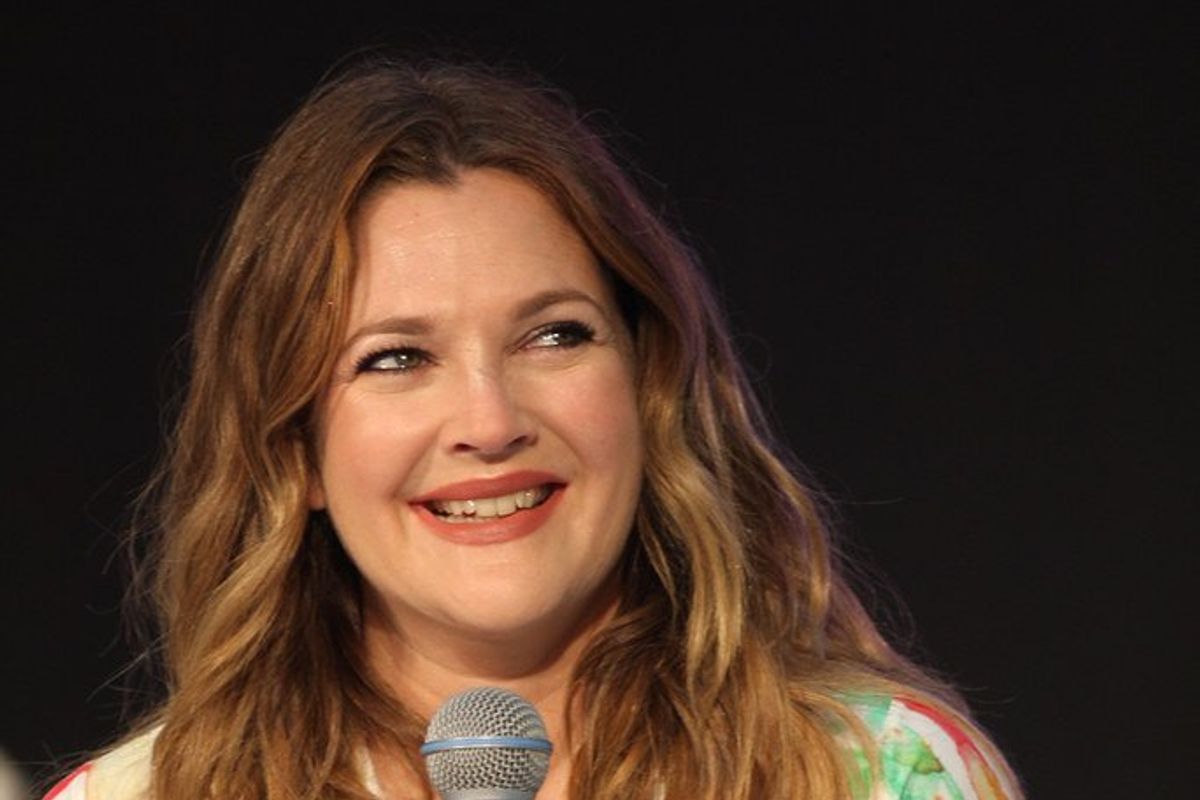Drew Barrymore writes raw, honest Mother's Day blog detailing her stay in rehab as a teen
A great read for those who have mom challenges of their own.
Drew Barrymore has always had a complicated relationship with her mother.
Drew Barrymore made a recent blog post in honor of Mother’s Day reflecting on her own complicated mother-daughter relationship, which eventually led to the actress and talk show host filing for emancipation at the age of 14.
Barrymore has long been candid about having a turbulent childhood, and in her blog post, she details being sent by her mother to a mental health facility in her adolescence, where she spent two years in the center's youth program attending individual and group therapy.
While going to rehab was certainly a humbling experience for the teen star, looking back she can confirm it was also a “revelatory” one, particularly in the way she viewed the importance of adults setting up protective structures for kids.
“I understand now: kids love feeling safe, and having boundaries is one of those crucial bumper rails. I lived a boundaryless life and job. And this place, as hellacious as it was, it was exactly what I needed from the too much excess my life had become on the outside,” she wrote.
During that time, she also learned the importance of advocating for one’s own emotional needs, even if that means putting distance between themselves and those they dearly love. Certainly a relatable lesson for many.
“It taught me the foundations of telling your truth…Your feelings. Your faults. Your hopes and wishes. Your hurts. What and where you wanted to get to in life,” she wrote. “And—very important—who was going to help you on your path and who would you have to let go. For me…it was my mother.”
When Barrymore did emancipate from her mother, there was a newfound sense of freedom (“the umbilical cord was severed,” she wrote). But still, she had to learn to reparent herself and somehow establish a structure she had never been taught. No easy task.
“I cannot give myself rave reviews. I drank too much. Partied and burned the candle at every end. I danced on desks and posed half-naked in the name of art. Nothing I judge. It’s my history. I was just trying to figure out how to grow up and who I wanted to become,” she shared.
Though over the years she has found a way to bring stability into her life, Barrymore admitted that being a mother “constantly triggers everything from my own childhood now,” especially since today, with social media providing “everything at your fingertips,” kids live in a similar world to what she grew up in. “It is the world I promised my daughters wouldn’t experience…and yet all our kids are in it now,” she shared.
And still, she declared that being a mom is the “greatest thing” she will ever do in her life.
“Everything in my experience here on this pale blue dot has been for them,” she wrote. “And now it is also my chance to not make it about me but learn how to deal with all that comes with choosing to be a parent.”
As for her current relationship with her mom, Barrymore finished her blog post by sharing that it had recently been her mother’s birthday. After sending a quick and simple birthday message, her mother wrote back, “Thank you so much! I’m incredibly proud of you and send you love,” which felt like the “greatest gift.”
And to her girls, Barrymore had this sweet Mother’s Day message: I just hope I can be someone who makes you feel safe,” she wrote. “And that you can laugh with. And that you can tell me anything. I’m here for it. I’m in the circle with you… for life.”
Barrymore has a reputation for being raw and honest, but fans seemed more profoundly struck by the vulnerability of this essay.
"I love your openness and honesty about what you have been through and experienced. Your example helps those you struggle in their own ways to see past the step they are on in this thing called life and know you can continue in whatever way/path you choose,” one person commented on Barrymore’s Instagram.
Another wrote, “Thank you! For your openness, for sharing and for fighting to be different and be yourself, for helping me set my heart at peace and know I am being true to myself. Happy Mother’s Day you beautiful human!”
Mother’s Day can indeed be a complicated time for many. The holiday can trigger feelings of loss, betrayal, resentment, yearning, fear—maybe all of the above and all at once—if someone’s relationship with their own mom was/is turbulent. There has been more awareness and sensitivity around this in recent years. Many companies have even given the option for customers to opt out of any Mother’s Day-related messaging.
No matter what wounds our mothers might have left us with, open conversations can be healing, be it online, in therapy groups or in our close friend circles. Who knows, it might just provide that bit of nurturing the soul has been searching for all along.
If you’d like to read Barrymore’s full blog post, click here.
- Steven Spielberg went the extra mile to keep E.T. 'alive' on set for Drew Barrymore ›
- Drew Barrymore and Dylan Mulvaney share powerful moment on what they've learned from their critics ›
- After causing an unexpected stir, Drew Barrymore explains why she 'doesn't need sex' ›
- Drew Barrymore draws backlash from WGA for continuing show - Upworthy ›
- Body language hack that makes people attractive - Upworthy ›
- Drew Barrymore makes 'vulnerable' Instagram post about taking away her tween daughter's phone - Upworthy ›
- Mom puts foot down after grandma brings 'humiliating gifts' for granddaughters - Upworthy ›

